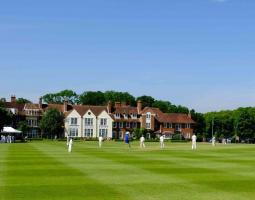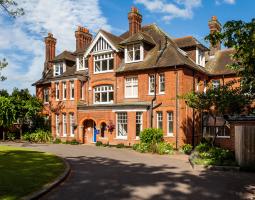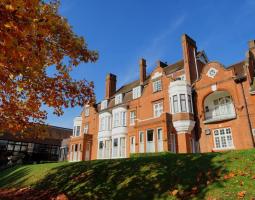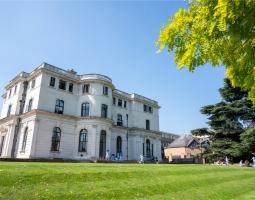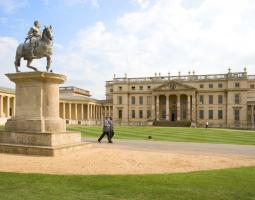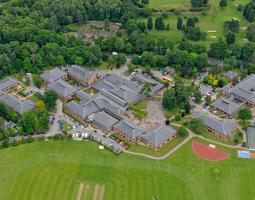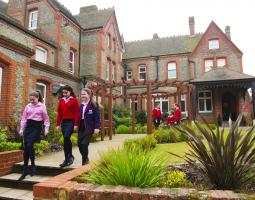Cavendish School, Cavendish School
Programs and prices, tuition fees in Cavendish School, Cavendish School
Primary School
- Age — from 7 to 12 years old,
- Duration of study — eight years.
The curriculum for primary school is based on the internationally renowned and sought-after International Baccalaureate program. In a comfortable and safe environment, with the support of qualified staff, students master a number of subjects:
- English language,
- English literature,
- Mathematics,
- Natural sciences,
- Art,
- Physical education,
- Humanities,
- Music,
- Computer science,
- Cooking,
- Personal, social, health and economic education (PSHE).
As students progress from grade to grade, the scientific topics expand and gradually deepen to help them acquire competitive knowledge and skills.
Senior School: 9th Grade
- Age — from 13 years old,
- Duration of study — one year.
In the ninth grade, students study the same subjects as in the curriculum, including mathematics, computer science and humanities, art, smoothly transitioning to Key Stage 4. Teachers introduce more interdisciplinary topics to help students connect knowledge across disciplines and learn to apply it in real life. Particular attention is paid to important social areas: future employment, independence, health.
Senior School: Grades 10-11
- Age — from 14 years old,
- Duration of study — two years.
At this stage, students begin preparing for the GCSE exams in 6-10 subjects — they will take these exams at the end of grade 11. With the support of qualified subject teachers, specialists and therapists, they create a personalized plan that includes compulsory and optional subjects. The list of compulsory subjects includes:
- English language,
- Mathematics,
- Natural Sciences: chemistry, physics, biology — you need to choose two scientific fields.
In addition to these, you can choose several disciplines according to your taste:
- Cooking,
- Psychology,
- Art,
- Statistics,
- Physical Education,
- Foreign language: Spanish, French, German.
Thanks to a personalized learning process, students master the academic curriculum and achieve success in exams, after which they move on to Sixth Form or enter specialized institutions.
Description of Cavendish School, Cavendish School
- Location: Impington, Cambridgeshire County, England,
- Language of instruction: English,
- Type of study: mixed.
Cavendish School — a specialized school focused on educating children with autism aged 7 to 16. It became the first institution of its kind in the world to offer a sought-after international diploma program, and the first in the region to provide free education for students with special needs.
The main goal of Cavendish School is considered to be creating a safe, personalized and comfortable environment for students who need extra attention. Qualified teachers with many years of experience work here, constantly expanding their knowledge in the field of teaching special children. At Cavendish School, each student receives individual attention, which makes the acquisition of academic knowledge, extracurricular development of their strengths and talents effective and at a pace that is comfortable for the student.
The school continues to improve in accordance with international educational standards, working collaboratively with two institutions: Impington Village College and Impington International College. To date, Cavendish School is fully accredited to teach programs from primary to graduating classes, but currently offers curricula only for grades 3-11.
Educational process
The learning process is fully personalized — teachers adapt the academic plan to the abilities, needs and goals of students. During classes they use special preparation methods:
- Personal learning and development lessons — are aimed at developing social and communication skills through structured sessions, role-playing games, and group discussions. Students learn strategies for effective communication, understanding social cues, and building positive relationships,
- Connected curriculum — is designed to integrate the development of social and communication skills into all subjects, providing students with constant opportunities to practice and apply these skills. The academic plan is tailored to student interests, increasing their engagement and motivation in learning sciences,
- Individual interventions — for students who require additional support, teachers offer special assistance, including small group sessions or individual lessons,
- Cambridgeshire therapeutic thinking approach — a set of strategies aimed at developing emotional and behavioral resilience,
- Visual schedules, assistive tools — clear aids help students understand the daily routine and requirements. This promotes independence and reduces anxiety,
- Positive, simplified language and praise,
- Advance warnings of changes, reducing anxiety.
Accommodation, meals, prices
Cavendish School does not provide accommodation during studies.
Hot and cold dishes, snacks and drinks are served daily in the dining room; the menu changes regularly, offering students dishes according to various recipes.
Activities Cavendish School, Cavendish School
After their main classes, students of Cavendish School can attend various clubs and sections, for example:
- Football Club — students develop their physical skills and knowledge of football under the guidance of professional Cambridge United coaches,
- Art Club — a creative space where children can explore various artistic techniques and materials,
- Construction Club — students participate in construction projects, developing practical skills and creativity,
- The Duke of Edinburgh's Award — a challenging program that includes volunteering, physical activity, skill development, and expedition,
- Programming Club — students learn coding and programming, deepening their understanding of technology,
- Math Circles — a space where students can explore complex mathematical concepts and improve problem-solving skills.
Advantages
- The world's first specialized school accredited to teach the International Baccalaureate program,
- Teachers have higher qualifications and many years of experience working with children with autism,
- A rich, balanced and personalized curriculum with a wide range of subjects and electives,
- Small classes of up to 10 students, taught by one teacher and two or three assistants in each class,
- Support for social and communication development,
- A wide range of extracurricular activities and clubs.
Facilities and equipment at Cavendish School, Cavendish School
Cavendish School is located in Impington and shares a campus with Impington Village College and Impington International College. Modern facilities have been created on the campus for educating neurodivergent children:
- Modified environment. Classes are adapted to minimize distractions and enhance concentration: this helps create a space where students can focus and feel comfortable.
- Regulation zones: focused on helping students control emotions and behavior through sensory experiences.
- Violin and sensory objects: students are provided with items to help them focus on self-regulation, and these can be found in almost all learning spaces.
- Social stories, comics, and scripts: used to explain situations and expectations in an accessible way, providing students with visual and practical guidance.
- Well-equipped outdoor spaces for outdoor activities.
In addition to classrooms and recreation areas, the school offers offices for therapists of various specialties: occupational therapist, speech therapist, psychotherapist, art therapist, and others. All specialists participate in student education, carefully supporting them in overcoming difficulties.
Admission dates and extra charges
The academic year at Cavendish School runs from September to early June, with classes held on weekdays from 8:30 AM to 2:45 PM. Students have breaks on weekends, national and international holidays, and during seasonal vacations.
Training is also available free of charge, however you will need to purchase personal study materials and a school uniform (mostly free places — for citizens of the UK).
Perspectives
Cavendish School provides a quality education based on the individual abilities and needs of each student. Through curricula, extracurricular activities, and support from specialized staff, students achieve excellent results, gain self-confidence and develop strong self-regulation skills, after which they can move on to college or university.
Entry requirements, how to apply, what is required to enrol
The main requirements for applicants will be the availability of a specialized learning plan confirmed by medical and academic staff, and an established diagnosis of "autism". To apply, you must provide the child's personal documents.
Institution on the map
Residence permits, citizenship and other services
- Guardianship services during the studies
- Student supervision
Review about Cavendish School, Cavendish School
Recommendations on when to apply
| Language courses, schools and children's language camps | Primary and secondary education - private schools | Preparation programmes for entering universities - higher education | Higher education (after completing accredited programs A-level, IB, High School) - Bachelor, Master, MBA |
| - we recommend to apply 6-9 months before the start of the course (some camps and schools offer discounts for early booking or for lengthy study programs) - there are some very popular and high demand children's camps, where the applications need to be submitted 1 year in advance (in particular Switzerland , Great Britain , USA , Canada , Austria) | - we recommend to apply one year before the start of the training program, - some schools have a specific time frame (September-November - please specify an individual school) - some schools require tests in several stages (UKISET, internal tests of the school: English, mathematics, logics, subjects, interview, some require a personal visit) | - we recommend to apply one year before the start of the program, - for Foundation and Pathway programs, IELTS and TOEFL certificates are usually required, respectively | - recommended submission one year before the start of the program, - the deadline normally closes in January, for TOP HEIs and, as a rule, in March in other universities - for a bachelor, a Foundation or Pathway preparatory program a completed A-level, IB, High School + IELTS / TOEFL are required - for Masters you need a graduated higher education, in some cases you need a pre-Masters program - MBA requires completed higher education, work experience preferably at least 2-3 years, etc. |

